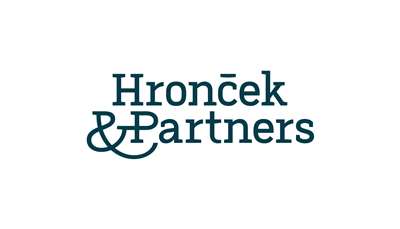At the beginning of last year, we published an article on the topic of trust funds, specifically planned legal amendments. We explained the concept of a trust fund and defined the conditions for appointing a trust fund manager. In this article, we will compare them in selected legal systems.

Trust funds are a model of asset management that is particularly popular abroad and has a firm place in foreign legislation, where it is usually referred to as a trust.
The essence of trust funds is that the owner of the assets has the opportunity to determine how their assets will be managed in the future. It should be emphasized that current legislation does not regulate the possibility of setting conditions for the management of assets in the event of the testator's death, and therefore the testator has no legal means of ensuring that his wishes and visions will be respected after his death.
A trust fund as a special institution for asset management is not regulated in the legal system of the Slovak Republic, despite the fact that some legal regulations use this term (e.g., the Act on Automatic Exchange of Financial Account Information for Tax Purposes).
We have already addressed the issue of trust funds in a previous article, focusing in particular on the connection between this institution and family business.
A trust fund is a set of assets, such as shares in a family business, which is set aside for a specific purpose and managed by a third party (trustee) for the benefit of a predetermined person (beneficiary). A trust fund allows the owner of the assets to determine how their assets will be managed in the future, thereby preserving the unity of the assets and preventing them from being divided, while also ensuring that such assets are not subject to inheritance. The rules for the disposal of assets in a trust fund are defined in the trust fund's statutes, which are binding on the trust fund administrator, who is obliged to dispose of the assets exclusively in accordance with the trust fund's statutes. The statutes may therefore clearly define who will participate in the family business and in what manner and proportion, and who will enjoy the benefits arising therefrom. The statutes can therefore be described as the most important document in the establishment of a trust fund, and we therefore recommend consulting an expert on their drafting or entrusting this task directly to experts, in particular to eliminate any risks that could arise as a result of an incorrectly or inadequately drafted statute and lead to property losses and the like.
Trust funds under the Czech Civil Code
When recodifying private law, the Czech Republic included trust funds in Act No. 89/2012 Coll. Civil Code (hereinafter referred to as the "Czech Civil Code"), which classifies them under property rights, specifically under the administration of foreign property. This classification is logical, as the administration of foreign property is the essence of trust funds. The Czech legal regulation of trust funds is relatively extensive, with almost 30 provisions governing the very essence of trust funds, their functions, asset management, and termination.
Under Czech law, a trust fund is created by separating assets from the founder's property, whereby the separated assets are entrusted to an administrator under a contract, who is obliged to manage them properly. It is important to note that the establishment of a trust fund also creates separate and independent ownership of the assets thus set aside. However, the assets in a trust fund are not owned by its founder, administrator or beneficiaries. The Czech Civil Code also stipulates the minimum content requirements for the statutes of a trust fund, which should include at least the designation of the property that is the subject of the trust fund, the purpose and conditions for the performance of the trust fund, as well as information on the duration of the trust fund and its administrators. The administrator may be any natural person who has full legal capacity. If so provided by law, a legal entity may also be appointed as administrator. After the establishment of the trust fund, its founder continues to have the right to supervise it, for example, the right to invoke the invalidity of a legal act performed by the administrator or to request the court to dismiss the administrator and appoint a new one. A trust fund expires upon the expiry of the period for which it was established or upon the achievement of its specified purpose. Another case of termination is an agreement by the beneficiaries to dissolve it. Last but not least, a trust fund may be dissolved by a court decision. Upon dissolution of a trust fund, the assets held therein shall pass to the beneficiary. If there is no beneficiary, the assets revert to the founder. The ultima ratio solution is to transfer the assets to the state if they cannot be transferred to the beneficiary or the founder of the trust fund, for example because they are no longer alive.
Trust fund under German law
The German Civil Code, like the Slovak Civil Code, does not contain specific provisions on trust funds. Nevertheless, this institution is known in German law, specifically as "Truehand," which is supplemented by case law. Truehand is established either for the benefit of the founder or for the benefit of a third party. Like a trust fund, a Truehand is therefore an institution for the management of foreign assets established by contract. It therefore has a contractual nature. German law distinguishes between open and hidden Truehands, the fundamental difference being the preservation of anonymity in the case of a hidden Truehand.
Anglo-American trust
The Anglo-American legal system uses the term trust to refer to trust funds, which represent a flexible legal arrangement for the management of foreign assets with a high degree of legal protection. The establishment of a trust results in the complete separation of the founder's property, and the property in the trust constitutes separate property managed by a trustee for the benefit of a third party (beneficiary). In comparison with German law, a trust is always established for the benefit of a third party, never for the benefit of its founder. The trustee is obliged to manage the property in accordance with the trust deed, which sets out specific rules for the management and disposal of the entrusted property. Trusts are usually anonymous, as information about the founder and third parties is not publicly available. Only the name of the trustee can be disclosed. An interesting feature is that the establishment of a trust makes it possible to bypass compulsory heirs in the event of inheritance.
